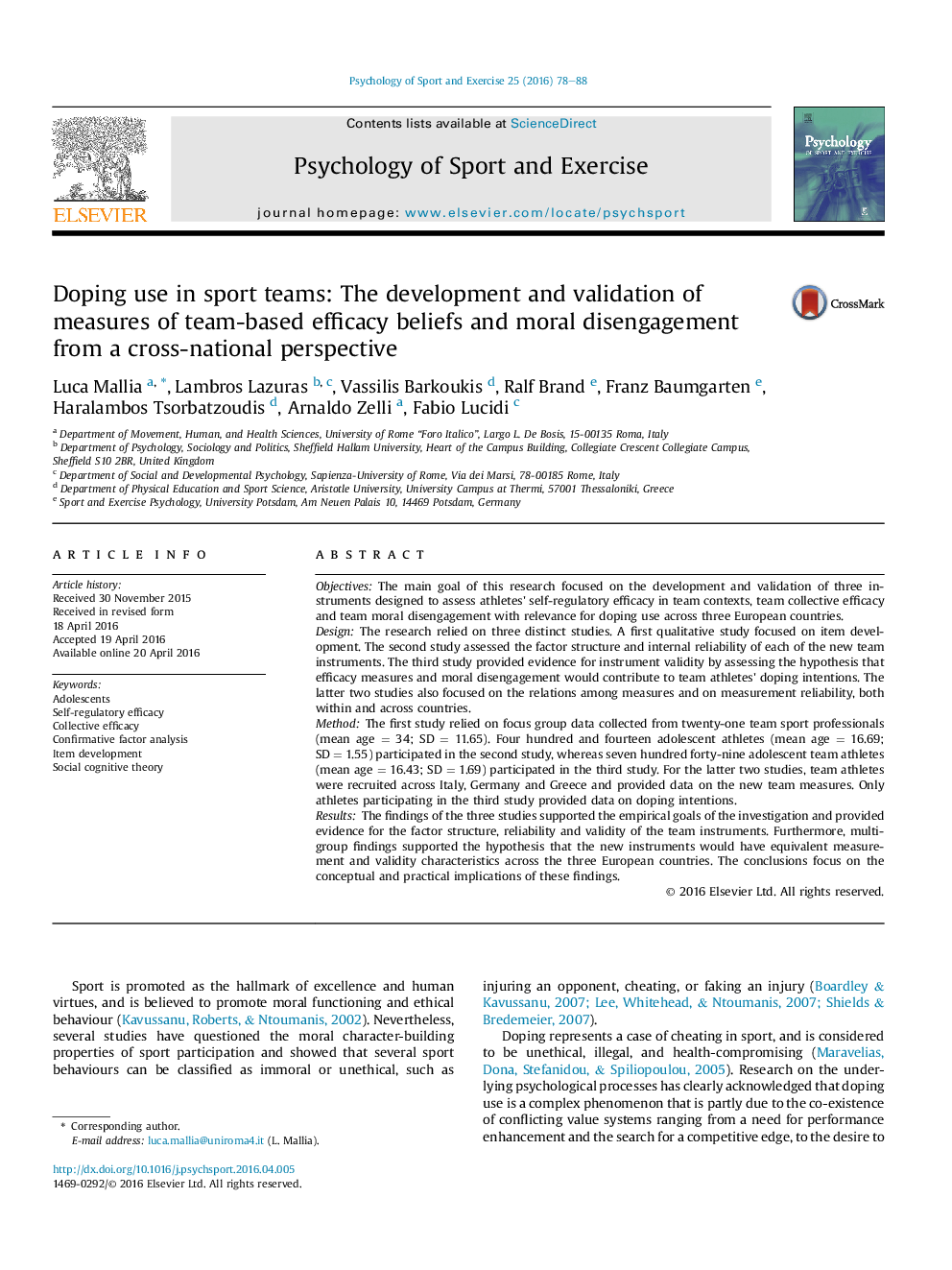| کد مقاله | کد نشریه | سال انتشار | مقاله انگلیسی | نسخه تمام متن |
|---|---|---|---|---|
| 894232 | 1472102 | 2016 | 11 صفحه PDF | دانلود رایگان |
• The investigation offers a new set of instruments measuring team-based processes for doping use.
• Three distinct studies supported the structure, reliability and validity of these instruments.
• The findings were supported across three different European countries.
ObjectivesThe main goal of this research focused on the development and validation of three instruments designed to assess athletes' self-regulatory efficacy in team contexts, team collective efficacy and team moral disengagement with relevance for doping use across three European countries.DesignThe research relied on three distinct studies. A first qualitative study focused on item development. The second study assessed the factor structure and internal reliability of each of the new team instruments. The third study provided evidence for instrument validity by assessing the hypothesis that efficacy measures and moral disengagement would contribute to team athletes' doping intentions. The latter two studies also focused on the relations among measures and on measurement reliability, both within and across countries.MethodThe first study relied on focus group data collected from twenty-one team sport professionals (mean age = 34; SD = 11.65). Four hundred and fourteen adolescent athletes (mean age = 16.69; SD = 1.55) participated in the second study, whereas seven hundred forty-nine adolescent team athletes (mean age = 16.43; SD = 1.69) participated in the third study. For the latter two studies, team athletes were recruited across Italy, Germany and Greece and provided data on the new team measures. Only athletes participating in the third study provided data on doping intentions.ResultsThe findings of the three studies supported the empirical goals of the investigation and provided evidence for the factor structure, reliability and validity of the team instruments. Furthermore, multi-group findings supported the hypothesis that the new instruments would have equivalent measurement and validity characteristics across the three European countries. The conclusions focus on the conceptual and practical implications of these findings.
Journal: Psychology of Sport and Exercise - Volume 25, July 2016, Pages 78–88
